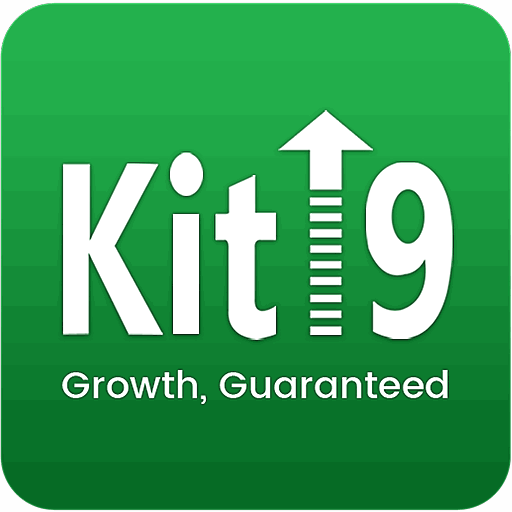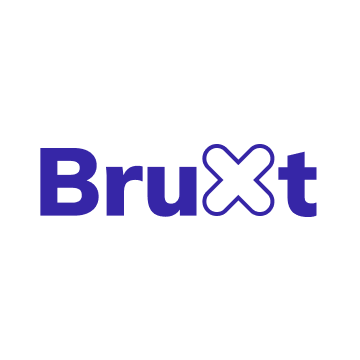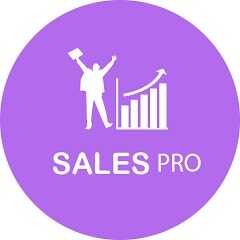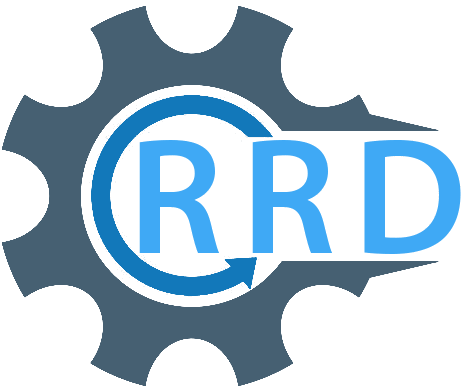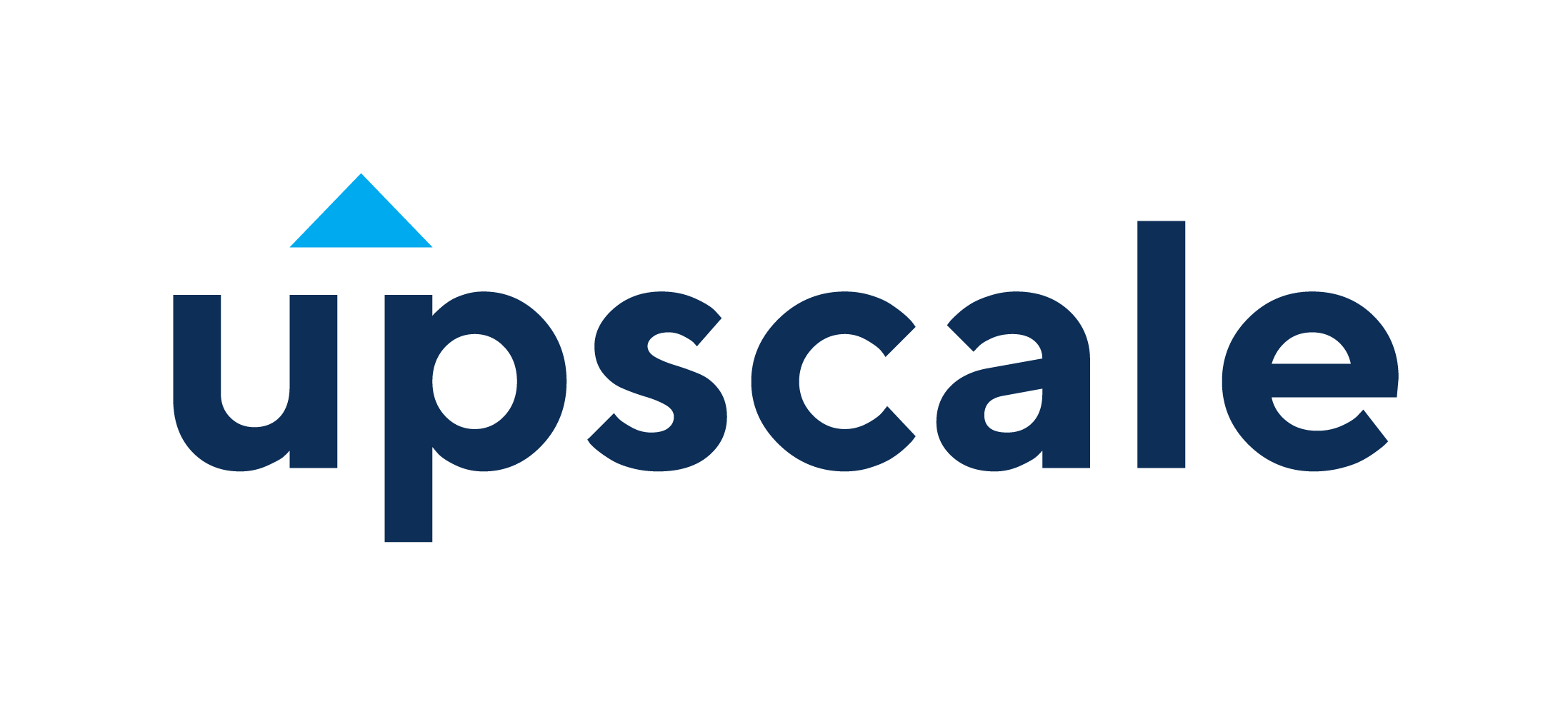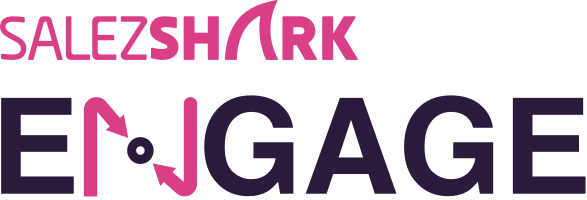Yes, most sales automation technologies are accessible from numerous devices and platforms, making it easy for sales teams to stay connected and organized when on the go. They are often cloud-based and include mobile apps that enable users to access their data and tasks from any smartphone or tablet. Furthermore, these tools are compatible with a variety of operating systems and can be used via web browsers, making them usable across a variety of devices and platforms.
List of 20 Best Sales Automation Tools
Kit19 - your all-in-one solution for effortless integration of Machine Learning into your daily workflows. Our dynamic platform adapts to your changing needs, utilizing valuable data insights to anticipate your preferences and provide personalized su...Read More Kit19
Valuecase - a dynamic digital tool designed for B2B sales teams to enhance their customer-centric sales approaches. Our user-friendly platform offers fully customizable options and a variety of standard add-ons to assist businesses in streamlining an...Read More Valuecase
Bruxt is a B2B contact data solution for global professionals and organizations. Our advanced platform gives your company a competitive advantage, providing reliable and up-to-date B2B contacts. Stay ahead in the market with Bruxt and power up your b...Read More Bruxt
TeamInsights is a team management software designed to streamline tasks, encourage collaboration, and provide instant analysis of team performance. Featuring a user-friendly interface and robust features, TeamInsights is the ideal solution for maximi...Read More Team Insights
SALES PRO is a dynamic and easy-to-use Field User Application designed to optimize key business processes. Available for both Android and iOS, this comprehensive solution simplifies daily tasks and enhances efficiency. Benefit from a centralized app...Read More SALES PRO
Ivy Distribution Management solution for manufacturers and distributors aiming to enhance their secondary sales network. Empower your distribution operations with advanced features such as user-friendly online ordering, efficient inventory management...Read More Ivy Distribution Management
Korero is a CRM and sales automation software that revolutionizes the way you manage customer relationships. Increase your win rates and streamline productivity with our intuitive platform. From startups to large enterprises, our flexible pricing pla...Read More Korero
Oneflow is a digital contract solution that simplifies the entire process, from creation to e-signing and management. Our advanced platform has gained the trust and satisfaction of numerous customers worldwide. Embrace the efficiency and ease of Onef...Read More Oneflow
C2CRM is a CRM solution for sales and marketing teams. Designed for businesses of all sizes, it offers collaboration tools and Business Intelligence module for informed decision making. With advanced reporting, dashboards, and analysis, C2CRM streaml...Read More C2CRM
OutReachly is sales tool designed to simplify and optimize your sales process. With its advanced sales pipeline tracking feature, you can easily monitor and manage your leads and engagements. Keep track of your sales progress and ensure timely and ef...Read More OutReachly
Round Robin Distributor is a tool for Sales and Service teams to streamline lead assignment and case routing. With automatic distribution, territory and skill-based routing, and relationship-based assignment, this software ensures fair and efficient...Read More Round Robin Distributor
VipeCloud is the go-to resource for automating your Sales and Marketing processes. With all-in-one functionality, you can easily manage email productivity, phone calls, social selling, content and document management, live demos, digital transactions...Read More VipeCloud
EBM SYS - Sunsofts innovative CLOUD-based Network Marketing solution. With a wide selection of 35 compensation plans and advanced AI technology, our software provides a secure platform for businesses to enhance their operations. Backed by top-notch s...Read More EBM SYS
WorkWise CRM is a CRM solution that efficiently works in conjunction with Aptean Industrial Manufacturing ERP. It offers a wide range of functionalities for sales, marketing, and customer service, giving a full view of all customer interactions. With...Read More WorkWise CRM
SmartWriter - the powerful personalization software that takes advantage of customer data like their Linkedin profile, recent achievements, and industry news, to generate highly personalized icebreakers for outreach. SmartWriters cutting-edge approac...Read More SmartWriter
Upscale is an innovative sales engagement software designed to drive revenue growth through targeted multi-channel sequences. Our platform streamlines sales processes, enabling sales teams to effectively convert leads and generate a consistent stream...Read More Upscale
SalesMind AI - a game-changing prospecting solution powered by AI technology! Our platform provides unparalleled access to a database of over a billion potential leads and offers advanced targeting capabilities for personalized outreach via LinkedIn...Read More SalesMind AI
SalezShark Engage is platform that helps businesses establish and nurture strong relationships with their clients. Through its advanced Relationship Cloud feature, users can easily convert leads into loyal customers. With SalezShark Engage, your sale...Read More SalezShark Engage
Corefactors AI CRM is a tool for revenue operations. This advanced CRM software utilizes AI technology to seamlessly manage Sales, Marketing, Customer Support, and Customer Success. With its RevOps-focused features, businesses can prevent revenue los...Read More Corefactors AI CRM
Claritysoft CRM: is a solution for streamlining your businesss workflow. Our cloud-based platform includes powerful tools for automating sales, marketing, and customer service processes. Easily track contacts from multiple sources, such as QuickBooks...Read More Claritysoft CRM
Learn More About Sales Automation Tools
- What Is Sales Automation Tools?
- What Are The Recent Trends In Sales Automation Tools?
- Benefits Of Using Sales Automation Tools
- Important Factors To Consider While Purchasing Sales Automation Tools?
- What Are The Key Features To Look For In Sales Automation Tools?
- Why Do Businesses Need Sales Automation Tools?
- How Much Time Is Required To Implement Sales Automation Tools?
- What Is The Level Of Customization Available In Sales Automation Tools?
- Which Industries Can Benefit The Most From Sales Automation Tools?
- Conclusion
What Is Sales Automation Tools?
Sales automation tools, also known as sales productivity tools, are software or online platforms that simplify and automate different tasks and processes in a salesperson's daily workflow. These technologies are specifically designed to increase the efficiency and effectiveness of the sales process by automating repetitive operations, minimizing manual effort, and allowing sales teams to focus on prospecting and completing deals.
Lead management is a key feature of sales automation software. These solutions enable sales teams to manage and organize prospects in a single centralized system, making it easier to prioritize and nurture leads as they move through the sales funnel. This function is especially useful for firms with several sales people or extensive sales cycles because it ensures that no leads go through the gaps.
Customer relationship management (CRM) is another important feature of sales automation technologies. CRM tools enable sales teams to save and retrieve all customer interactions and data in a one location. This not only aids in acquiring a thorough understanding of clients, but it also facilitates personalization and tailoring sales talks. Email automation, task management, and reporting and analytics are among the services offered by sales automation solutions.
Email automation allows sales professionals to develop and send personalized emails to prospects while also tracking email engagement. Task management keeps sales teams organized and on top of their to-do lists, whereas reporting and analytics provide insights into sales success and enable data-driven decision-making. In addition to these essential functions, many sales automation programs provide for integration with other tools and systems, such as marketing automation platforms and customer care applications.
This connectivity enables easy data flow across departments, resulting in a comprehensive perspective of the client journey. Overall, sales automation solutions are critical for increasing sales efficiency and productivity, allowing sales people to focus on their strengths - selling. When considering acquiring a sales automation solution, you must first examine your sales processes and select the exact features and functions that will best meet your team's objectives and goals.
What Are The Recent Trends In Sales Automation Tools?
Sales automation solutions have become an essential component of the sales process in today's fast-paced business environment. These software solutions are intended to expedite and optimize a variety of sales processes, from lead creation to completing deals. As technology advances, new trends emerge in the sales automation tool market, influencing how organizations offer their products or services.
Before investing in a sales automation technology, buyers should be aware of the following recent trends:
1. Artificial Intelligence (AI) Technology: AI has transformed the sales automation tool industry by providing better and more tailored solutions to enterprises. Sales teams can now use AI to automate operations like lead scoring, follow-up emails, and predictive analytics, allowing them to optimize their sales processes and better identify new customers.
2. Integration With CRM Systems: Sales automation products must now integrate with Customer Relationship Management (CRM) systems, rather than as an option. This enables smooth data flow between the two platforms, resulting in a 360-degree view of clients and their interactions with the sales staff.
3. Mobile Accessibility: In today's digital world, salespeople aren't restricted to working from their desk. Mobile accessibility has become an essential feature of sales automation platforms, allowing sales personnel to access key information and connect with teammates while on the go.
4. Gamification: With the advent of remote work and the need to keep sales teams motivated, gamification capabilities have grown increasingly popular in sales automation software. These features use game-like elements to motivate and incentivize salespeople, making their jobs more entertaining and productive.
5. Predictive Analytics: Using machine learning and data analytics, sales automation technologies may now deliver predictive insights into customer behavior and sales patterns. This enables sales teams to anticipate customers' demands and find potential upsell or cross-sell opportunities.
6. Personalization: Today's consumers expect individualized experiences, and sales automation solutions are no exception. Personalization elements, such as personalised email campaigns and targeted messaging, have become critical for firms to stand out in a competitive market.
7. Chatbots: Chatbots have emerged as a prominent trend in sales automation systems, allowing organizations to give 24-hour customer care. These AI-powered technologies can manage typical customer inquiries while also assisting with lead generation and nurturing.
Benefits Of Using Sales Automation Tools
Sales automation solutions are gaining popularity among organizations of all sizes due to their ability to streamline operations, increase efficiency, and ultimately increase sales. These solutions provide a wide range of features and benefits that can significantly help sales teams and boost overall performance.
Let's explore, we will look at the main benefits of adopting sales automation technologies and how they may help your organization flourish.
1. Time Savings And Efficiency: One of the most significant advantages of sales automation solutions is their potential to save time and increase efficiency. By automating monotonous operations like data entry, lead nurturing, and follow-up emails, sales professionals can devote more time to more critical duties like prospecting and closing sales. This not only saves time, but also improves the team's total production.
2. Improved Sales Forecasting: Sales automation technologies include extensive analytics and reporting capabilities that provide useful insights into sales data. This enables sales managers to properly predict future revenues and make data-driven decisions. With real-time data, sales representatives may discover trends and change their plans accordingly, resulting in enhanced sales performance.
3. Improved Lead Management: Lead management is an important component of sales, and automation solutions help make it easier and more productive. These technologies can automatically capture and organize leads, allocate them to the appropriate sales representative, and track their progress throughout the sales cycle. This not only simplifies lead handling, but also assures that no leads slip through the gaps.
4. Personalization And Customization: Sales automation systems have extensive capabilities that enable personalization and modification of sales messages and content. This can significantly improve the customer experience and help to develop stronger ties with prospects. Sales agents can improve their chances of closing a sale by adapting sales pitches and messaging to their customers' individual demands and pain concerns.
5. Consistency And Compliance: Using sales automation solutions guarantees that all sales representatives use the same sales practices and approved messaging. This promotes uniformity in messaging and branding while also ensuring compliance with company laws and regulations. Managers can use the ability to track and monitor sales operations to verify that all salespeople reach their quotas and follow sales standards.
6. Integration With Other Tools: Sales automation technologies frequently integrate with other tools and applications, including CRM, email marketing, and customer support. This not only helps to optimize procedures, but it also gives a more complete picture of client interactions and data. With all of these technologies functioning together, it is easier to manage and nurture leads throughout the client journey.
Important Factors To Consider While Purchasing Sales Automation Tools?
When it comes to purchasing sales automation solutions, there are a few important elements to consider in order to make the best option for your company. These considerations can help ensure that the product you choose efficiently streamlines your sales process and drives your company's success.
Here are the key aspects to consider while selecting sales automation tools:
1. Features And Functionality: Prior to making a purchase, it is critical to understand the precise features and functionality that each sales automation product provides. Look for products that offer capabilities like lead generating, pipeline management, email automation, and analytics. Consider your business's specific requirements and prioritize the things that are most important to you.
2. Integration And Compatibility: Choose a sales automation platform that works flawlessly with your current CRM, marketing tools, and other software used by your sales staff. This will ensure a smooth data transfer and prevent any disturbances in your business.
3. User-Friendliness: The tool's user interface and overall design should be simple to use. Your sales team will be using this product on a daily basis, so make sure it's one they're familiar with.
4. Modification Options: Because each company has its unique sales process and requirements, it's critical to select a tool that allows for modification. Look for tools to customize pipelines, task lists, and templates to fit the solution to your individual sales process.
5. Mobile Accessibility: In today's fast-paced corporate environment, sales staff must be able to access their tools while on the road. Look for sales automation technologies that include mobile accessibility, so your staff can use the tool from anywhere.
6. Data Security: Because sales automation solutions frequently handle sensitive client data, it's critical to select one with strong security safeguards in place. To protect your data from potential breaches, look for options that include data encryption, secure logins, and scheduled backups.
7. Customer Assistance: When selecting a sales automation platform, evaluate the company's degree of customer assistance. Look for tools that provide onboarding assistance, training resources, and continuing support to ensure that your team can fully utilize the tool's capabilities.
When choosing sales automation technologies, consider these crucial considerations to make an informed purchase that will help both your organization and your sales staff. Remember to prioritize your company's specific demands and select a tool that provides the functionality, compatibility, and support required to create success in your sales process.
What Are The Key Features To Look For In Sales Automation Tools?
When selecting the best sales automation solution for your company, it's critical to thoroughly analyze the major aspects to make an informed decision.
The following are the key characteristics that a buyer should look for in sales automation tools:
1. Lead Management: One of the key goals of sales automation systems is to help you manage leads more effectively. Look for tools such as lead creation, lead scoring, and lead tracking to assist expedite the lead management process and discover qualified leads.
2. Customer Relationship Management (CRM) Integration: A decent sales automation technology should work seamlessly with your CRM system. This ensures that all of your client data is up to date and easily accessible, making it easier to track and manage interactions.
3. Email Marketing Automation: Email marketing is an important part of modern sales strategies, and a good sales automation platform should have features such as email templates, email scheduling, and tailored email campaigns to help you connect with your leads and clients.
4. Task And Calendar Management: A good sales automation platform should have task management and calendar tools to assist you keep organized and on top of your sales activities. To keep organized, look for options such as task assignment, reminders, and calendar syncing.
5. data And Analytics: Having access to real-time analytics and data is critical for measuring the performance of your sales campaigns. Look for solutions that can monitor and analyze important sales indicators such as lead conversions, sales performance, and pipeline activities.
6. Workflow Automation: Automation is fundamental to sales automation solutions, and it should streamline your sales processes. Look for features like automatic email responses, lead nurturing routines, and job automation to save time and increase productivity.
7. Mobile Accessibility: As remote work becomes more common, having a sales automation platform that is mobile-friendly might be game-changing. Look for products that include a mobile app or a flexible website so you can manage your sales operations while on the go.
Why Do Businesses Need Sales Automation Tools?
Sales automation technologies are critical for firms of all sizes and sectors. These solutions offer a variety of advantages that assist organizations optimize their sales operations, increase efficiency, and improve their bottom line. In today's competitive company world, a strategic approach to sales is essential, and sales automation solutions give exactly that. One of the primary reasons why firms use sales automation technologies is to boost productivity.
These solutions simplify time-consuming and repetitive chores like data input and lead tracking, allowing salespeople to focus on creating relationships and completing deals. This not only saves time, but also accelerates sales cycles and increases income. Furthermore, sales automation technologies have sophisticated analytics and reporting features that can provide useful insights into the sales process.
This enables firms to find opportunities for improvement, optimize their sales methods, and make data-driven decisions. Businesses can boost customer satisfaction by tailoring their sales technique to their specific consumers. Sales automation technologies also help organizations stay organized. Businesses can use tools like lead scoring and segmentation to prioritize their leads and target the most qualified.
This results in more effective lead handling and conversion rates. Furthermore, these systems use centralized databases to hold all consumer information, making it easy to access and track customer interactions. Furthermore, sales automation solutions work with a variety of platforms, including customer relationship management (CRM) systems and email marketing software.
This ensures smooth communication between sales, marketing, and other divisions, resulting in enhanced collaboration and better alignment with business objectives. One of the most major benefits of sales automation technologies is that they enable tailored and timely engagement with customers. Businesses may communicate with their leads and customers at any point of the sales journey using tools such as email templates, drip campaigns, and automated follow-ups. This promotes trust and rapport, resulting in increased client retention rates.
How Much Time Is Required To Implement Sales Automation Tools?
The implementation time for sales automation solutions varies depending on the technology, your organization's size, and the level of customization necessary. On average, fully implementing a sales automation platform can take anything from a few weeks to a few months. First and foremost, it is critical to recognize that adopting a sales automation solution is not a one-size-fits-all procedure.
Your organization's specific demands and processes must be considered to guarantee a smooth transition to the new technology. The initial stage in the implementation process is usually data migration. This entails moving all of your existing customer and sales information from your present system to the new automation solution. The amount of time required will be determined by the size and complexity of your data.
Next, the tool will need to be customized and configured. This includes creating workflows, templates, and integrating with other tools and systems. The amount of customization necessary will influence the implementation time, since more complicated configurations may take longer to set up. Once the product has been configured to meet the specific needs of your organization, your sales staff will require training and onboarding.
This is a critical step toward ensuring the tool's successful adoption and utilization. The length of this procedure will be determined by your sales team's size and previous experience with similar tools. Finally, the implementation phase will include testing and troubleshooting to discover and resolve any difficulties that arise before the tool is fully installed.
What Is The Level Of Customization Available In Sales Automation Tools?
Sales automation tools offer various levels of customization, allowing businesses to tailor the software to their specific needs. This feature is especially crucial for sales teams with unique processes and workflows.
Here are some key points to consider when evaluating the level of customization available in sales automation tools:
1. Customizable Workflows: Most sales automation tools offer pre-built workflows that can be customized to fit your specific sales processes. This allows you to automate tasks and create a more efficient and streamlined sales process.
2. Personalization Capabilities: Personalization is a crucial aspect of successful sales, and some tools offer advanced personalization options. This includes customized email templates, personalization tokens, and dynamic content, enabling you to create personalized and targeted sales messages.
3. Custom Fields And Data: The ability to add custom fields and data is a vital customization feature in sales automation tools. This allows you to track and organize data that is specific to your business and sales processes, making it easier to generate custom reports and analyze your sales performance.
4. Integration With Other Tools: Sales automation tools that offer integration with other tools allow for more customization possibilities. You can integrate with CRM software, email marketing platforms, and other sales tools, making it easier to personalize and automate your sales processes.
5. User Permissions And Roles: In larger sales teams, it is essential to have control over user permissions and roles. Look for sales automation tools that offer different access levels and the ability to customize user roles to match your team’s structure.
6. Custom Dashboards And Reports: Custom dashboards and reports allow you to get a visual representation of your sales data in a way that is most relevant to your business. Some sales automation tools offer drag-and-drop customization options, making it easy to create custom reports for different teams and stakeholders.
Which Industries Can Benefit The Most From Sales Automation Tools?
Sales automation solutions can considerably assist a variety of businesses by organizing and streamlining operations, resulting in enhanced efficiency and sales. These techniques are especially effective in sales-intensive industries like retail, technology, and manufacturing.
The following industries can benefit the most from sales automation tools:
1. E-commerce: With the increase in online shopping, e-commerce enterprises can considerably benefit from sales automation solutions. These technologies can help organizations automate chores like order management, inventory tracking, and responding to customer inquiries, allowing them to focus on more critical areas of their operations.
2. Software/Technology: Sales automation solutions are ideal for the fast-paced and always expanding technology business. They can assist businesses in streamlining their sales operations, including lead creation and nurturing, as well as transaction closing and client relationship management.
3. Real Estate: The real estate industry places a high value on communication and client relationships. Agents and brokers can use sales automation systems to manage leads, automate follow-ups, and track crucial data and deadlines, allowing them to provide more efficient and personalized service to their clients.
4. Healthcare: Sales automation solutions may significantly improve the healthcare industry by automating operations like patient communication, appointment scheduling, and follow-ups. This not only saves time for healthcare personnel, but it also enhances the patient experience.
5. Financial Services: Banks and insurance industries can have sophisticated and time-consuming sales processes. These organizations can use sales automation technologies to manage prospects, track client interactions, and automate operations such as sending payment or renewal reminders.
Overall, any industry that deals with sales and customer relationship management can profit from using sales automation solutions. These solutions can help firms streamline their operations, boost efficiency, and eventually enhance sales and revenue. So, no matter what industry you're in, adding sales automation solutions into your organization can help you gain a competitive advantage and meet your sales targets.
Conclusion
Finally, investing in a sales automation solution can help your sales force be more productive and efficient. With a variety of features and integrations, these solutions can help you optimize your sales process, generate more leads, and strengthen customer interactions. Before making a purchase, you should carefully consider your unique goals and budget, as well as considerations like simplicity of use, customization possibilities, and customer service.
Also, make sure you thoroughly research and evaluate various sales automation technologies to find the greatest fit for your company. Implementing a sales automation technology allows you to save time, decrease manual duties, and focus on developing your organization. you get the most out of your selected technology, make sure you examine and update your sales procedures on a regular basis. We hope this buyer's guide helped you find the best sales automation product.
Sales Automation Tools FAQ's
Can Sales Automation Tools Be Accessed Across Multiple Devices And Platforms?
Is Sales Automation Tools Future-Proof And Adaptable To Emerging Technologies Like AI, Blockchain Or IoT?
Yes, sales automation systems are future-proof and adaptable to upcoming technologies such as artificial intelligence, blockchain, and Internet of Things. These tools are continually changing and incorporating new technology to improve sales procedures and results. AI-powered sales automation systems may evaluate customer data to personalize sales methods, and blockchain ensures secure and transparent transactions.
Additionally, IoT connectivity provides real-time information and automation to help streamline sales operations. Sales automation technologies are intended to keep pace with the ever-changing business landscape and give organizations a competitive advantage.
Is There A Free Trial Offered To Assess Sales Automation Tools Before Committing?
While the availability of free trials for sales automation solutions varies by tool and provider, many organizations do provide a free trial time for potential clients to evaluate the technology before making a purchase. This allows organizations to test out the features and determine whether the solution satisfies their requirements before making a cash commitment. Before investing in a tool, it is recommended that you use free trials to ensure it is a good fit for your organization.
Does Sales Automation Tools Offer Data Security Features And Meet Regulatory Compliance Standards?
Yes, most sales automation platforms provide data security features such as encrypted data storage and SSL encryption during data transit. They also adhere to regulatory norms such as GDPR and CCPA. Some programs even include additional security features such as multi-factor authentication and audit logs to protect sensitive data. However, it is always advisable to extensively examine a tool's security features and compliance certifications before purchasing.
Can Sales Automation Tools Integrate Seamlessly With Existing Tools And Platforms?
Yes, most sales automation technologies are intended to work easily with other tools and platforms, like as CRMs and marketing automation software. This leads to a more efficient and streamlined workflow because all data and processes are linked and automated. However, before incorporating any new sales automation solution into your existing system, make sure that it is compatible. Most providers provide thorough integration guidelines and support to ensure a smooth transition.

